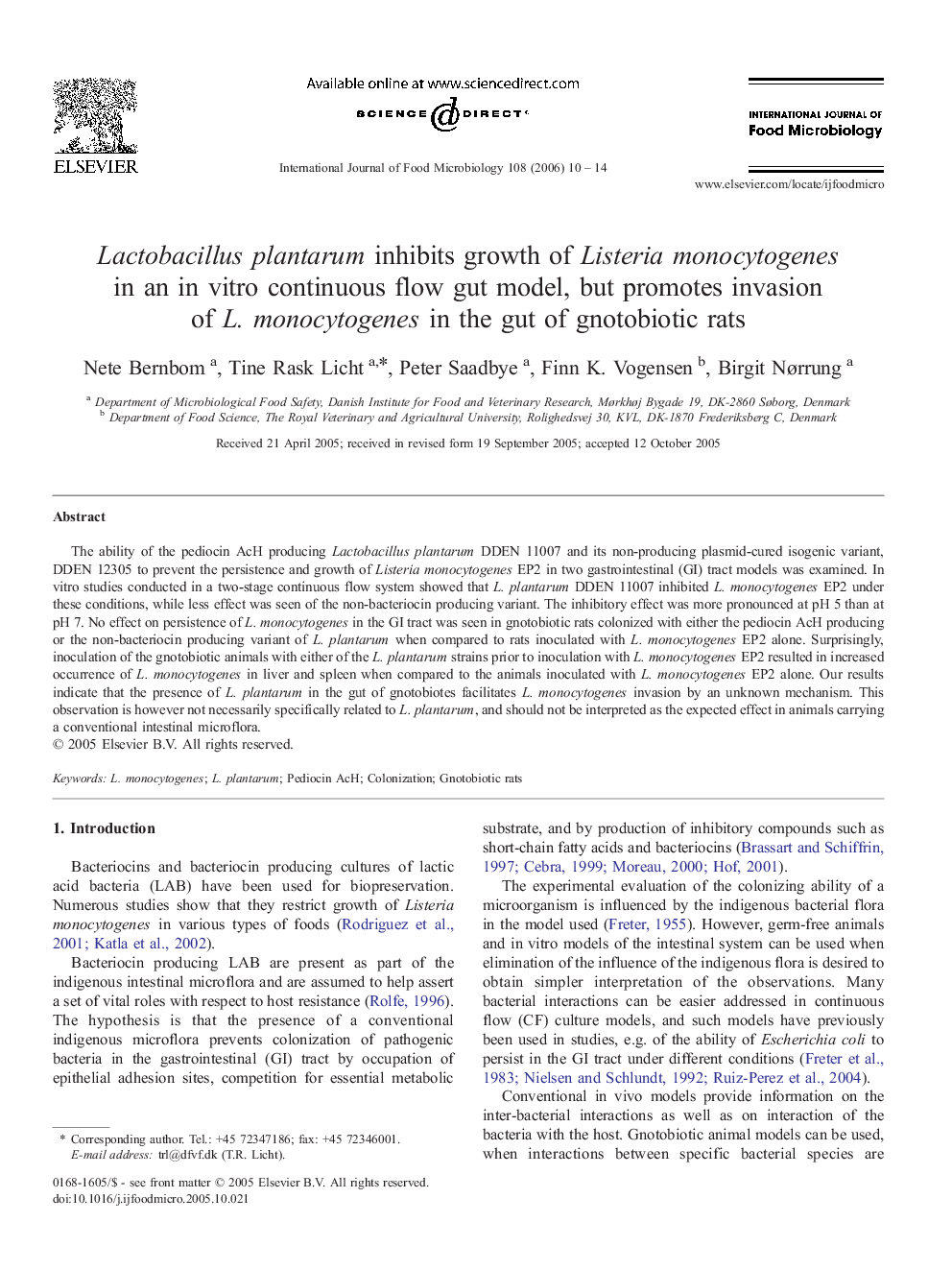| Article ID | Journal | Published Year | Pages | File Type |
|---|---|---|---|---|
| 4369910 | International Journal of Food Microbiology | 2006 | 5 Pages |
Abstract
The ability of the pediocin AcH producing Lactobacillus plantarum DDEN 11007 and its non-producing plasmid-cured isogenic variant, DDEN 12305 to prevent the persistence and growth of Listeria monocytogenes EP2 in two gastrointestinal (GI) tract models was examined. In vitro studies conducted in a two-stage continuous flow system showed that L. plantarum DDEN 11007 inhibited L. monocytogenes EP2 under these conditions, while less effect was seen of the non-bacteriocin producing variant. The inhibitory effect was more pronounced at pH 5 than at pH 7. No effect on persistence of L. monocytogenes in the GI tract was seen in gnotobiotic rats colonized with either the pediocin AcH producing or the non-bacteriocin producing variant of L. plantarum when compared to rats inoculated with L. monocytogenes EP2 alone. Surprisingly, inoculation of the gnotobiotic animals with either of the L. plantarum strains prior to inoculation with L. monocytogenes EP2 resulted in increased occurrence of L. monocytogenes in liver and spleen when compared to the animals inoculated with L. monocytogenes EP2 alone. Our results indicate that the presence of L. plantarum in the gut of gnotobiotes facilitates L. monocytogenes invasion by an unknown mechanism. This observation is however not necessarily specifically related to L. plantarum, and should not be interpreted as the expected effect in animals carrying a conventional intestinal microflora.
Related Topics
Life Sciences
Agricultural and Biological Sciences
Food Science
Authors
Nete Bernbom, Tine Rask Licht, Peter Saadbye, Finn K. Vogensen, Birgit Nørrung,
